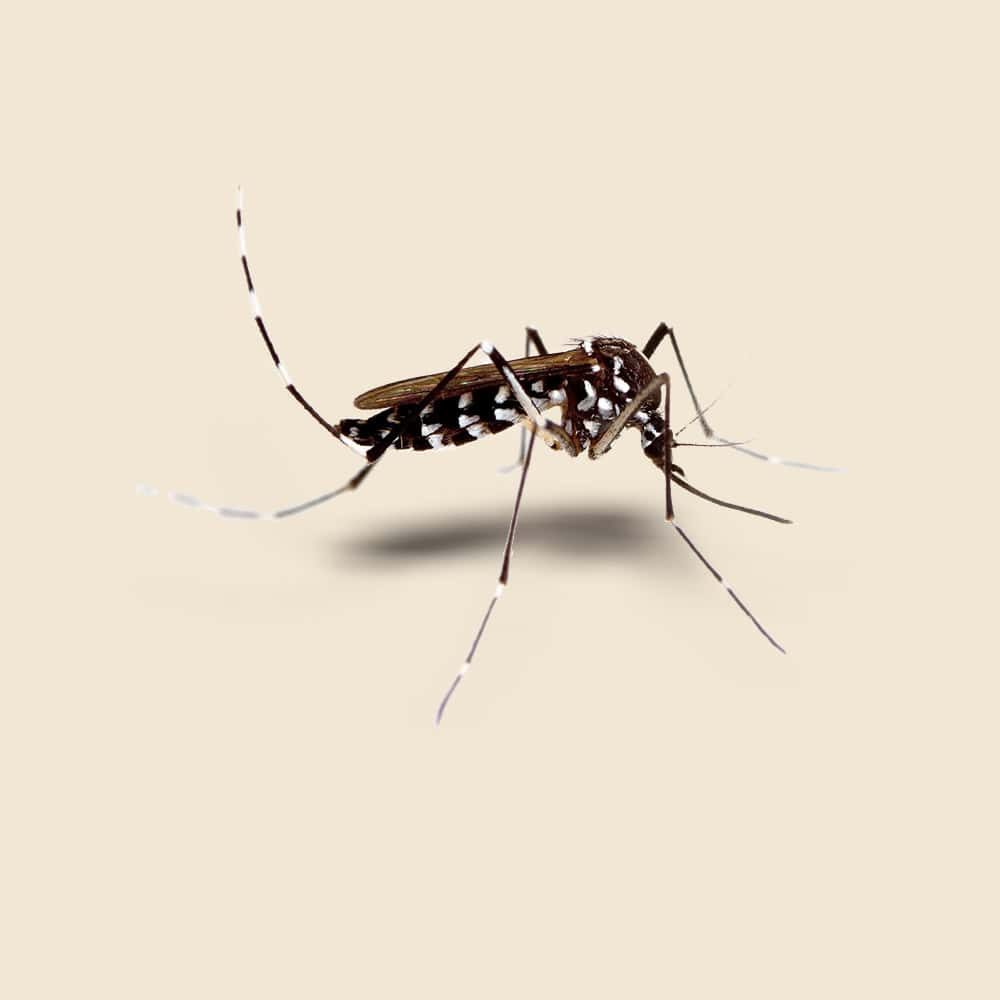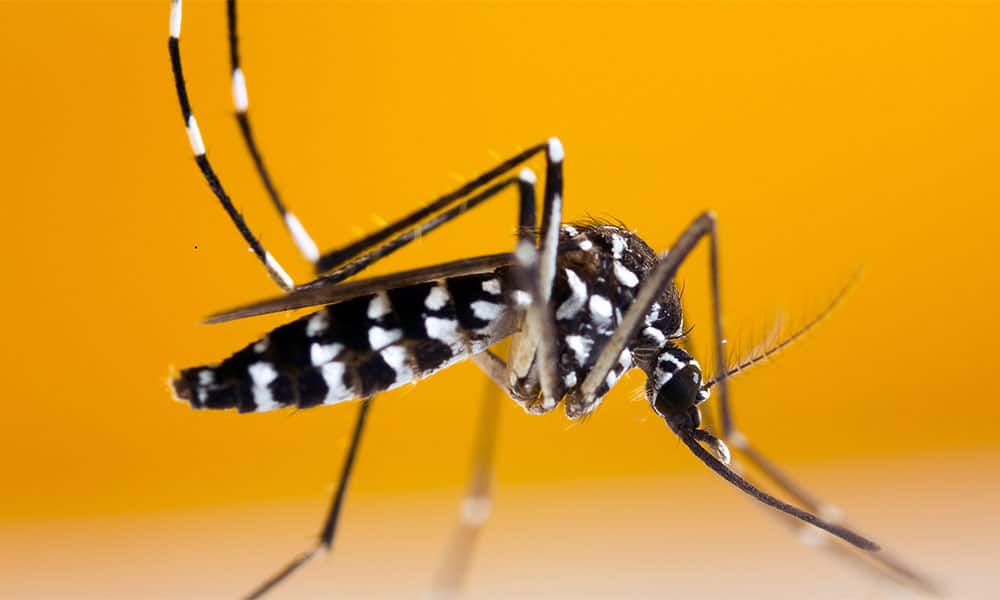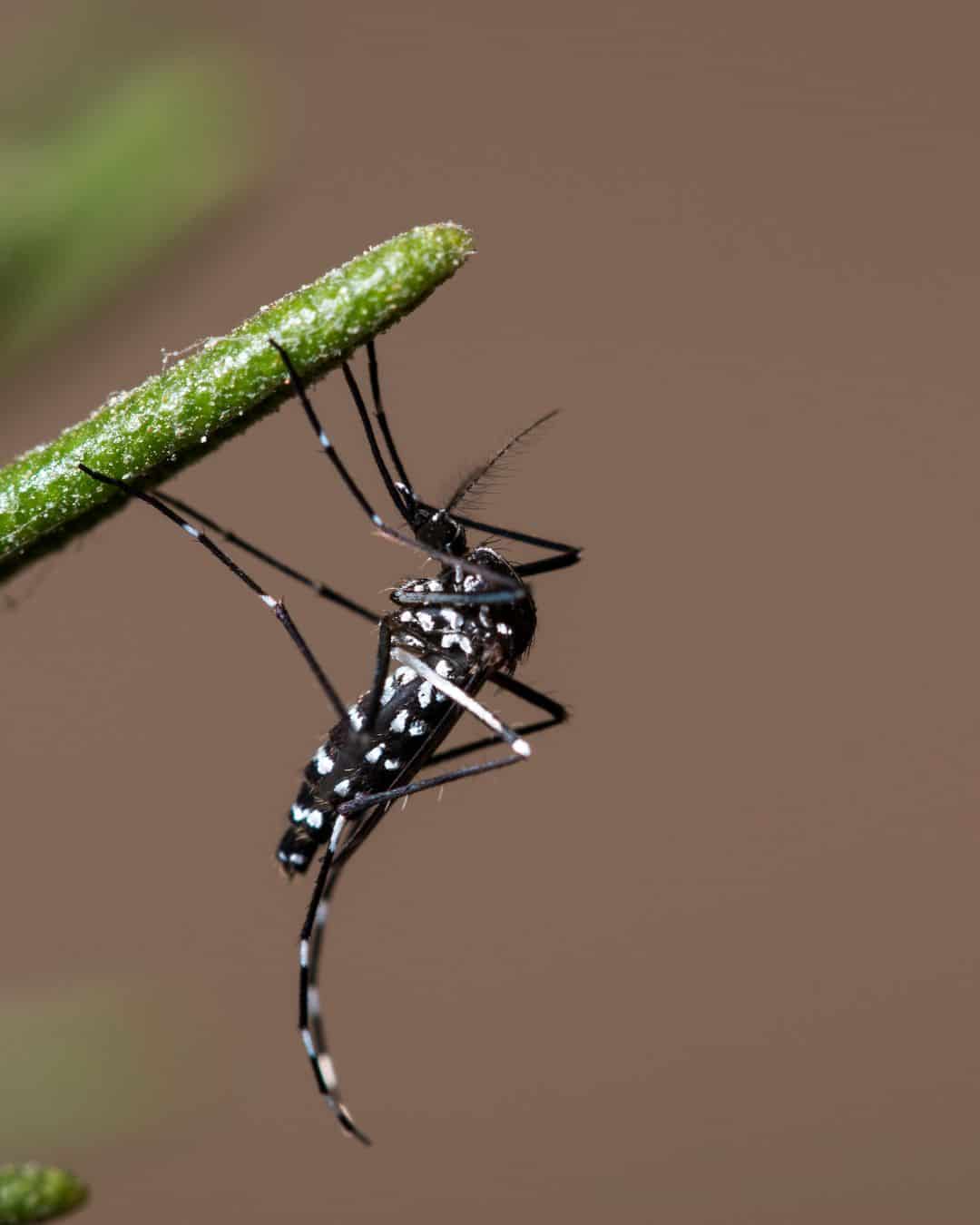Asian Tiger Mosquito Facts & Information
Asian tiger mosquitoes, known for their distinctive black and white striped legs and aggressive daytime biting behavior, can pose significant health risks and create substantial discomfort. These invasive pests are capable of transmitting diseases, making their control a priority for homeowners and communities.

Aedes albopictus
What You Need To Know About Asian Tiger Mosquitoes
What do Asian tiger mosquitoes look like?
Asian tiger mosquitoes are small, approximately 1/4 inch in length, with a distinctive black and white striped pattern on their bodies and legs. They have a single white stripe running down the center of their back, which gives them their “tiger” name.
What do Asian tiger mosquitoes eat?
Adult female Asian tiger mosquitoes feed on the blood of humans and animals to obtain the necessary proteins for egg production. Males and females both feed on nectar and other plant sugars for energy.
What sort of habitat do Asian tiger mosquitoes live in?
Asian tiger mosquitoes thrive in warm, humid environments and are commonly found in urban and suburban areas. They lay their eggs in standing water, such as in containers, flowerpots, birdbaths, and other artificial or natural water-holding objects.
How do Asian tiger mosquitoes commonly behave?
Asian tiger mosquitoes are aggressive daytime biters, with peak feeding times in the early morning and late afternoon. They are known for their persistent biting and are capable of transmitting various diseases, including dengue fever, Zika virus, and chikungunya.
Did you know this about Asian tiger mosquitoes?
Asian tiger mosquitoes are originally from Southeast Asia but have spread to many parts of the world, including the United States, due to global trade and travel. They are highly adaptable and can survive in a wide range of climates, contributing to their successful spread. Interestingly, they are one of the few mosquito species that prefer to bite during the day rather than at dusk or dawn. Their presence and behavior have made them a significant public health concern in many regions.
Understanding Asian Tiger Mosquito Infestations
Understanding Asian tiger mosquito infestations is crucial for effective management. These mosquitoes thrive in warm, humid environments and breed in standing water. They are notorious for their painful bites and can be found in a variety of settings, including urban areas, gardens, and wooded regions. Unlike many other mosquito species, Asian tiger mosquitoes are active during the day, particularly in the early morning and late afternoon.

How Hearts Handles Asian Tiger Mosquito Treatment
Hearts Pest Management employs an integrated pest management approach to handle Asian tiger mosquito infestations. Our process begins with a thorough inspection to identify breeding sites, assess mosquito activity, and determine the best course of action. We then develop a customized treatment plan that may include environmental management, biological controls, and targeted insecticide applications, ensuring the safety and comfort of your property.
Asian Tiger Mosquito Inspection
Asian Tiger Mosquito Treatment
Asian Tiger Mosquito Prevention
Educational Resources

Think You Might Have a Asian Tiger Mosquito Infestation?
At Hearts Pest Control, we understand the challenges associated with Asian Tiger Mosquito infestations and are here to provide professional solutions tailored to your needs. Flourishing in warm and humid climates, they are prevalent in many regions, including San Diego County, Orange County, and Los Angeles County.